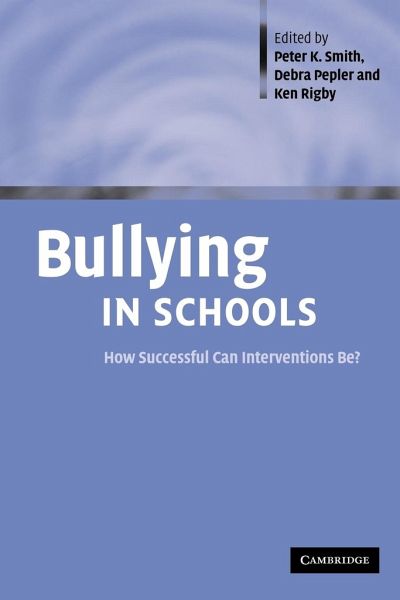
Bullying in Schools
How Successful Can Interventions Be?
Herausgeber: Smith, Peter K.; Rigby, Ken; Pepler, Debra J.

PAYBACK Punkte
28 °P sammeln!
Bullying in Schools is the first comparative account of the major intervention projects against school bullying that have been carried out by educationalists and researchers since the 1980s, across Europe, North America and Australasia. Working on the principle that we can learn from success as well as failure, this book examines the processes as well as the outcomes, and critically assesses the likely reasons for success or failure. With contributions from leading researchers in the field, it is an important addition to the current debate on tackling this distressing problem.














